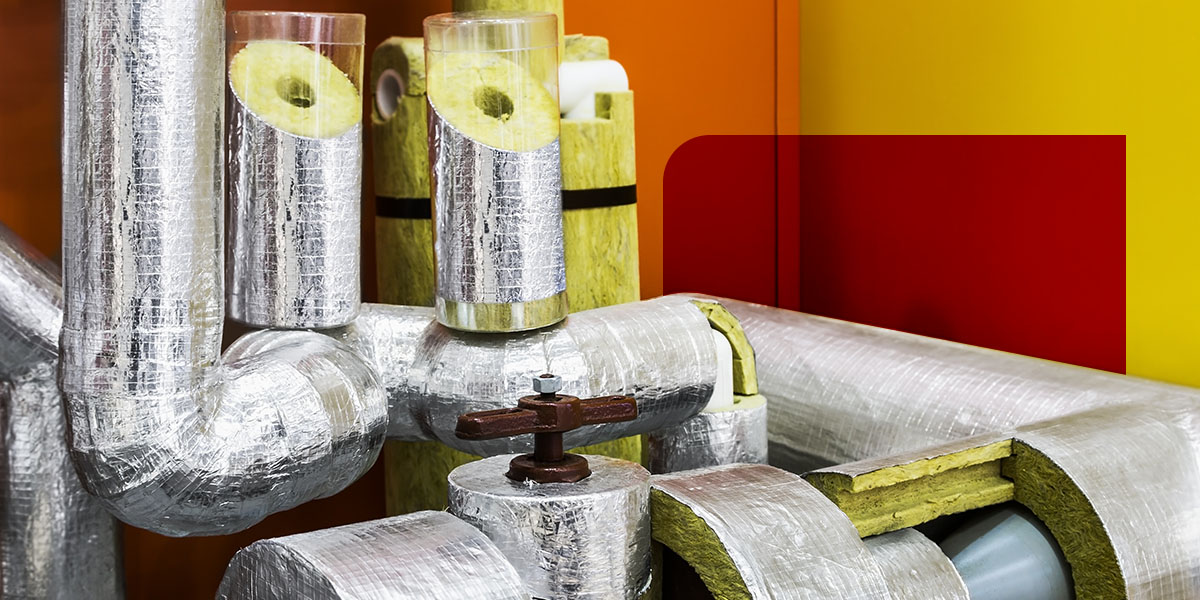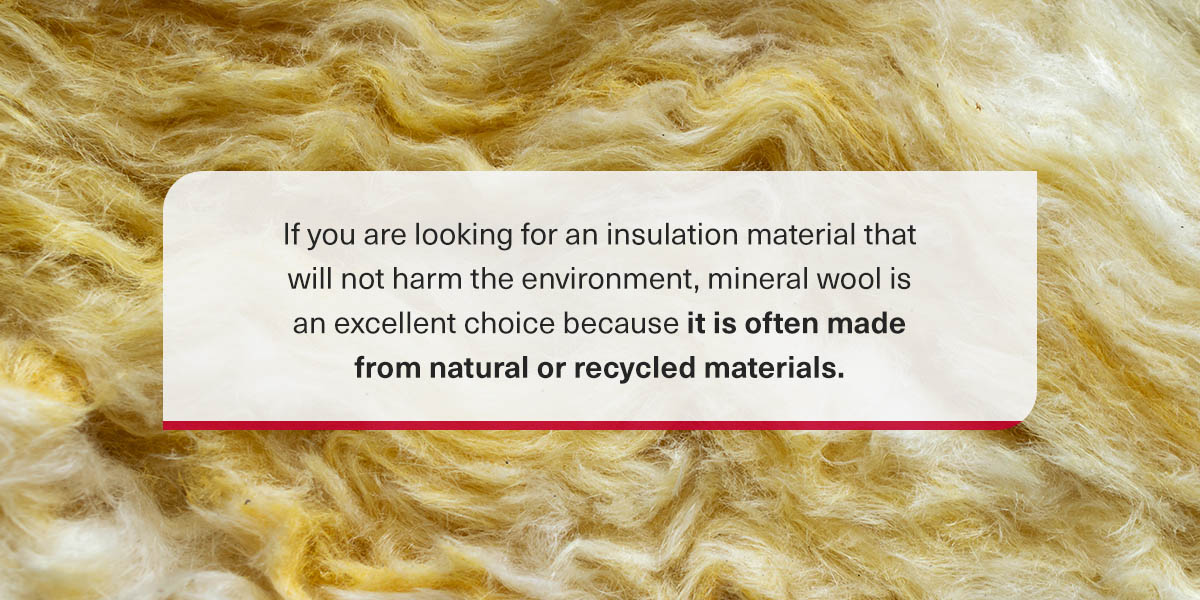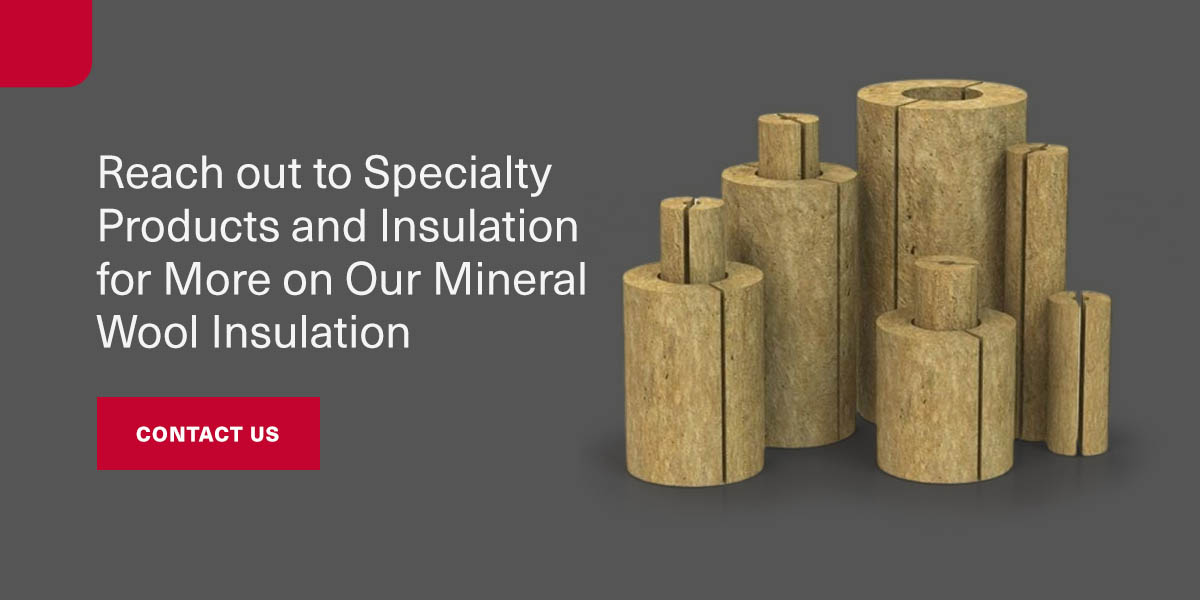An Introduction to Mechanical Insulation Materials: Mineral Wool Insulation
Posted on Tuesday Jun 25, 2024 at 10:46AM in General

Mineral Wool Insulation
Mineral wool is a highly durable and effective insulating material. It can be used for many applications but is most commonly used in mechanical applications.
If you are considering mineral wool insulation for your next project, you've come to the right place. This guide covers everything you need to know about this type of insulation, including its primary uses, key benefits, and which form best suits your specific needs.
What Is Mineral Wool Insulation?
Mineral wool insulation, also called stone wool and slag wool insulation, is a fibrous insulation material made from slag, volcanic rock, or basalt. Its materials are heated at high temperatures, and then the melted remnants are spun into dense fibers that can form insulating boards, rolls, batts, or loose-fill insulation options.
Mineral wool is like fiberglass insulation in many ways, though the two have distinct differences. Fiberglass is made from molten glass and tends to be less dense, making it slightly less effective for acoustic and thermal applications.
Key Characteristics of Mineral Wool Insulation
Explore the key characteristics and advantages of using mineral wool insulation below:
- Fire resistance: One of the benefits of mineral wool insulation is that it is non-combustible. It can withstand especially high temperatures, up to 1200°F, and is among the best options for fire protection applications. This insulation can actually help slow the spread of flames throughout a building.
- Thermal insulation: Mineral wool typically has a high R-value, usually around R-4 per inch. This makes it an excellent solution for high-pressure applications, such as lining hot pipework. It also has low thermal conductivity and resists heat flow. The material can withstand extreme temperatures without compromising its integrity and performance.
- Density: The density of mineral wool insulation is generally a nominal 8-pound density for industrial applications, though the exact number depends on the specific insulation type.
- Acoustic properties: Mineral wool is an excellent option if you're looking for insulating materials with good acoustic properties that can effectively reduce sound transmission. Its density helps enhance sound absorption and create a quieter environment.
- Moisture resistance: Mineral wool insulation provides a beneficial level of moisture resistance that does not promote the growth of mold and mildew. It is less prone to moisture absorption than comparable materials like fiberglass. This also allows mineral wool to be engineered to repel water, reducing the risk of corrosion under insulation (CUI.)
- Versatility: Slag wool insulation is very versatile and useful for various applications, including residential, commercial, and industrial projects. It is also available in many different forms.
- Eco-friendliness: Mineral wool is an excellent choice for insulation that will not harm the environment. It is often made from natural or recycled materials, and rock is one of the most abundant materials on the planet.

Mineral Wool Insulation Applications
Mineral wool insulation is most commonly used in mechanical applications but can be utilized in a wide range of settings. It is one of the most versatile types of insulation on the market and is a go-to choice for many applications, including:
- Thermal insulation: Some of the most popular uses of rock wool include thermal insulation in HVAC systems, industrial facilities, and other buildings. It effectively reduces heat transfer, which improves indoor air temperatures and boosts energy efficiency.
- Soundproofing: Mineral wool insulation is a good option for spaces that need noise control, such as studios, theaters, or commercial spaces. It can reduce sound transmission between different rooms and floors of a building.
- Fire protection: Mineral wool is non-combustible and typically ASTM E84 fire-rated, making it a great option to slow the spread of fire within a facility.
- Resin-bonded panels: Mineral wool is also used to produce resin-bonded panels, which in turn are used for thermal and acoustic insulation in building projects. These panels offer incredible structural durability while also providing thermal and acoustic properties.
- Compounds for gaskets: Manufacturers can incorporate mineral wool insulation into gasket compounds to achieve effective sealants, flexibility, and resistance to the outside environment. They can be used for harsh operating conditions and contribute to the gasket's thermal performance.
- Brake pads: Mineral wool insulation can also be used for brake pads as it provides excellent friction while delivering impressive heat resistance and long-term durability.
- Filtering medium: Mineral wool can also be used in filtration systems. Its density and high-temperature resistance make it suitable for trapping pollution and particulate matter.
Where to Use Mineral Wool Insulation in Different Forms
You can find mineral wool insulation in many unique forms to serve various purposes, including:
Industrial Board
Mineral wool insulation is available in the form of industrial boards. These rigid panels are typically applied to flat surfaces, like the body and roof of a tank, and can provide both thermal and acoustic insulation in industrial settings. They are a common choice for insulating equipment that requires fire resistance, as they can withstand temperatures up to 1200°F. Industrial boards can vary in thickness but tend to be between 1.5 and 4 inches. The density of mineral wool board is most commonly 8 pounds, but it can range from 4-12 pounds.
Enerwrap
Enerwrap is a type of mineral wool insulation manufactured by leading insulation company ROCKWOOL®. It is often considered the jack-of-all-trades form of mineral wool insulation. It is a wrap material with an FSK (foil scrim kraft) or black matte finish and is sold in a roll format. It has been designed to be used on-site to insulate a variety of equipment, including tanks, roofs, vessels, and pipes. Enerwrap is also commonly used to insulate pipelines. The thickness of this insulation often ranges from about 2 to 6 inches and has a nominal 8-pound density.
V-Grooved Products
V-grooved mineral wool insulation products feature cut grooves along their exterior to fit a nominal pipe size and simplify installation, particularly around curved surfaces. They are a go-to option for insulating pipes that exceed 16 inches in diameter and are commonly found in pipeline projects. V-grooved insulation is made to order and can be produced in various sizes to suit your specific application. V-grooved insulation is often selected due to its ability to be packed flat, reducing wasted space in freight carriers by as much as 70%, and thus reducing shipping costs for materials. SPI offers v-grooved mineral wool insulation to customers as part of our selection of fabricated materials.
Pipe Insulation
Another common form of mineral wool is mandrel-wound preformed pipe insulation. This insulation helps control condensation, prevents heat loss or gain, and boosts energy efficiency. The thickness of stone wool pipe insulation is typically between 1 and 4 inches thick for most applications and has a nominal 8-pound density. It can be applied to pipes with a diameter of anywhere from 1 to 40 inches.
Reach out to Specialty Products and Insulation for More on Our Mineral Wool Insulation
If you are looking for high-quality mineral wool insulation, consider the options available from Specialty Products and Insulation (SPI). Whether you need boards, pipe coverings, or tank wraps, we have you covered.
Our team of seasoned specialists has the expertise and knowledge to ensure you get the right products for your specific applications. We value precision and responsiveness, so you know you'll always receive the support you need.
Are you interested in learning more about our insulation products? Contact us today for additional information.

